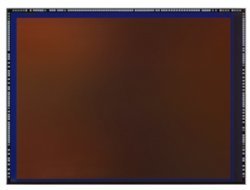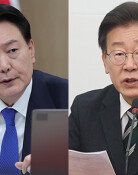Samsung launches industry's first 108MP mobile image sensor
Samsung launches industry's first 108MP mobile image sensor
Posted August. 13, 2019 07:42,
Updated August. 13, 2019 07:42

Samsung Electronics announced Monday that it will mass produce 108 megapixel (Mp) Samsung ISOCELL Bright HMX, its new mobile image sensor to go beyond 100 million pixels. The latest addition came in three months after the company introduced 64Mp sensor offerings in May.
“An image sensor with over 100 million pixels will allow users to take clearer pictures through mobile devices,” an official at Samsung said.
An image sensor is an electronic equipment that converts the light received by a camera lens into a digital signal. Being one of the key devices in the system semiconductor field, the image sensor related market is expected to grow further with the development of self-driving cars and the Internet of Things (IoT).
The latest development is also expected to help the South Korean tech giant to compete against Japan’s Sony, which is currently taking the largest share of the market. According to IHS Markit, Samsung ranked second in the image sensor market for smartphones with 17.8 percent market share in the first quarter, while Sony was No. 1, accounting for 51.5 percent. Park Yong-in, executive vice president of sensor business at Samsung Electronics, stressed that the firm will make continuous efforts to top the world’s image sensor market by 2030.
Samsung said that it has collaborated with Xiaomi from the early conceptual stage to produce a groundbreaking 108Mp image sensor. The Chinese smartphone maker said last Wednesday that it will use Samsung’s 64Mp image sensor in an upcoming Redmi phone, and the latest 108Mp sensor will be also used. Japan’s local media outlets have analyzed the close collaboration between the two companies to be Samsung’s strategy to expand its supplies in China to outperform Sony.
“An image sensor is a device that uses hydrogen fluoride, one of the items subject to stricter export restrictions lately imposed by Japan,” an industry observer said. “It is meaningful that Samsung has further widened the technology gap amid unfavorable external conditions.”
Keun-Hyung Yoo noel@donga.com







